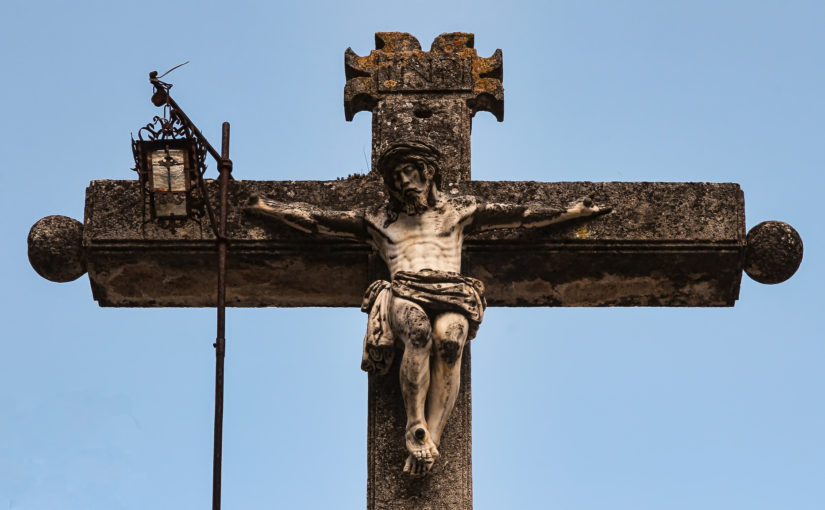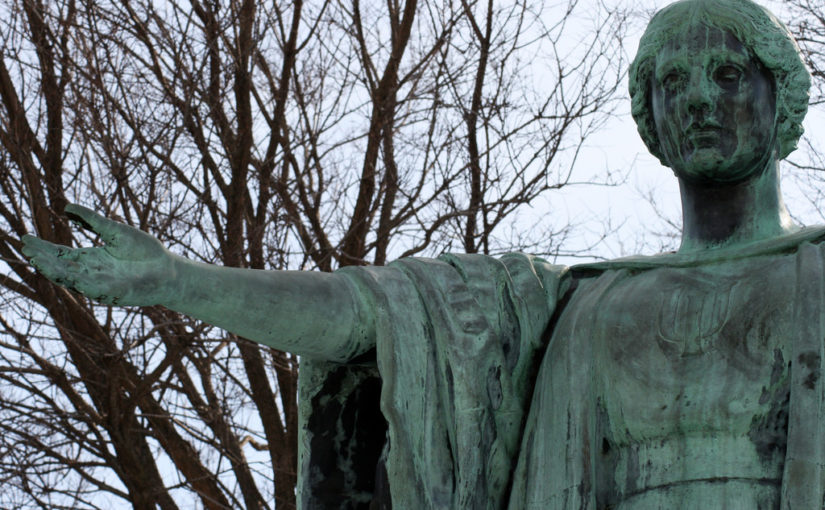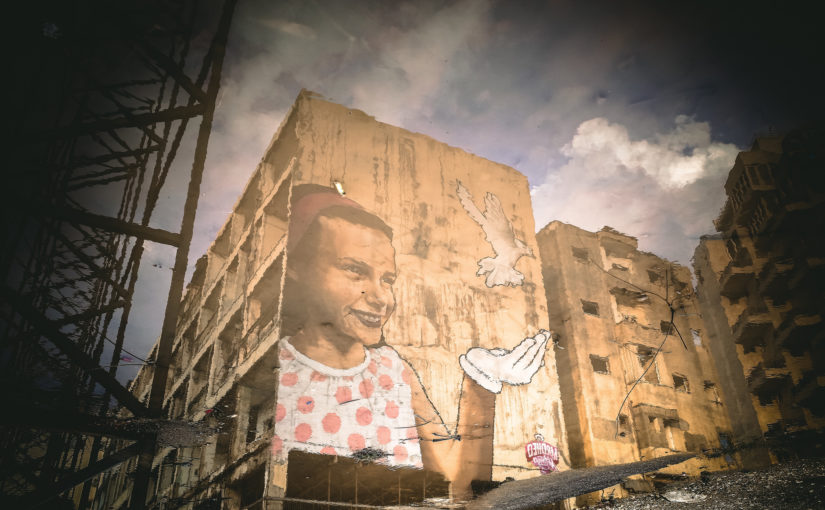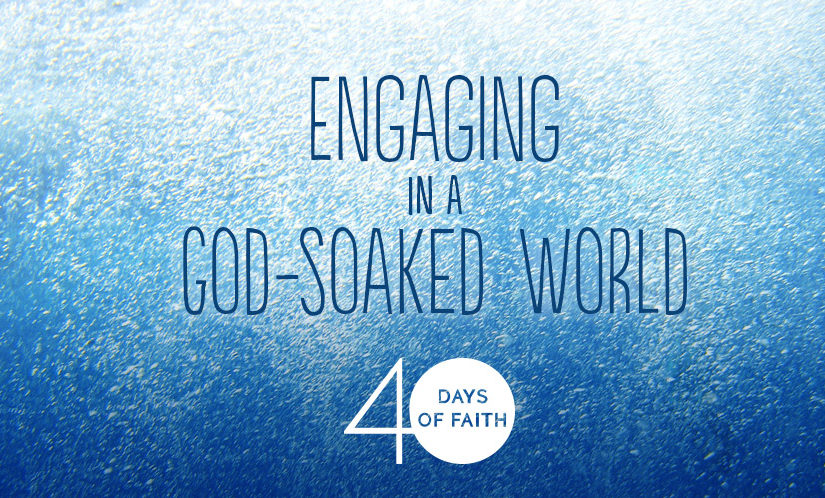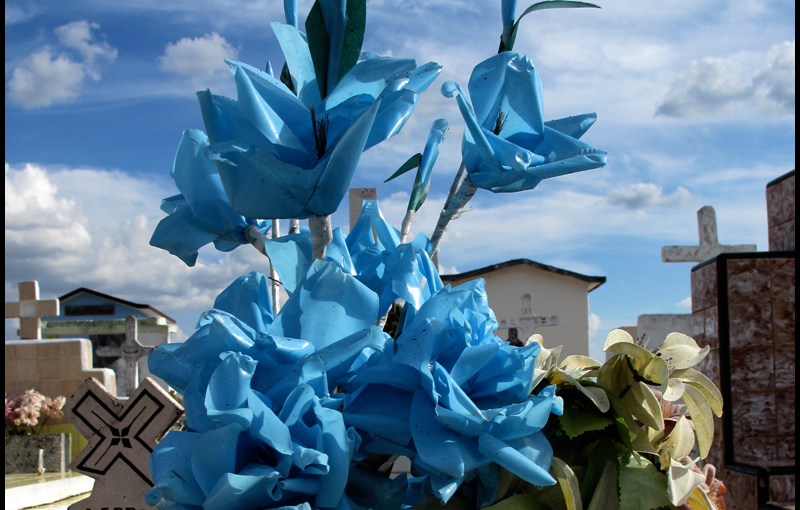Friday, April 7– John 19:17-19, 23-30
17 and carrying the cross by himself, he went out to what is called The Place of the Skull, which in Hebrew is called Golgotha. 18 There they crucified him, and with him two others, one on either side, with Jesus between them. 19 Pilate also had an inscription written and put on the cross. It read, “Jesus of Nazareth, the King of the Jews.” … 23 When the soldiers had crucified Jesus, they took his clothes and divided them into four parts, one for each soldier. They also took his tunic; now the tunic was seamless, woven in one piece from the top. 24 So they said to one another, “Let us not tear it, but cast lots for it to see who will get it.” This was to fulfill what the scripture says,
“They divided my clothes among themselves,
and for my clothing they cast lots.”
25 And that is what the soldiers did.
Meanwhile, standing near the cross of Jesus were his mother, and his mother’s sister, Mary the wife of Clopas, and Mary Magdalene. 26 When Jesus saw his mother and the disciple whom he loved standing beside her, he said to his mother, “Woman, here is your son.” 27 Then he said to the disciple, “Here is your mother.” And from that hour the disciple took her into his own home.
28 After this, when Jesus knew that all was now finished, he said (in order to fulfill the scripture), “I am thirsty.” 29 A jar full of sour wine was standing there. So they put a sponge full of the wine on a branch of hyssop and held it to his mouth. 30 When Jesus had received the wine, he said, “It is finished.” Then he bowed his head and gave up his spirit.
Points of Interest:
- The next day Jesus’ execution takes place on a hillside or mountainside location known as Golgotha. The Latin name for this place is where the English name sometimes used, Calvary, comes from. There’s debate around the reason for this name. It could be because of the skull-like shape of the hill, because it was near a graveyard, or because it might have been a place of frequent executions. Regardless, it again roots this scene both in a specific geography and a rather gothic-feeling mood.
- I’m not sure what I can say about crucifixion that hasn’t been said many times in many places. Wikipedia’s entry on the subject (https://en.wikipedia.org/wiki/Crucifixion) is actually – as of today – pretty thorough and well done. The Romans didn’t invent crucifixion, but they certainly ended up popularizing it. Given their penchant for detail, the Romans may also have perfected crucifixion as a method of public shame, torture, and state execution. The victim would often carry a crossbeam of up to a hundred pounds to the execution site, and then be left hanging naked to die of asphyxiation when he no longer had strength to hoist himself up to breathe. It was a gruesome form of torture and intimidation.
- For the sake of space, I cut some of the verses in which the Roman governor Pilate and Jerusalem’s religious leaders quibble over the sign Pilate had made, likely to mock the Jewish authorities who turned Jesus over to the Roman military.
- John takes a surprising amount of time on the detail of Jesus’ clothes and on the soldiers’ behavior. Partly this speaks to the sense of geographic and spiritual place of this scene. John and his fellow biographers are constantly telling us both where things happened and that they happened consistent with previous scriptures’ expectations for how these things would go. Here the quotation about the clothing is lifted from Psalm 22 – an old poem of someone’s unjust suffering and eventual vindication by God that other biographers say was very much on Jesus’ mind as he was killed.
Beyond this, Jesus’ biographers give us these vivid details because they help us picture and imagine how these events occured. This is what it was like, and this is what it’s like still when you are executed by armed agents of the state, however innocent you may be. Your murderers might do stuff like mock your family and culture, or take your possessions for themselves.
- Also, in these tragic moments in life, so often we find there are women waiting, and women grieving, and women suffering. Here too that’s the case. Three women, coincidentally all named Mary, are there at the scene, grieving the loss of their son and nephew and mentor and friend.
- Even as he’s dying, Jesus looks to the need of his mother Mary, and the need of the disciple mentioned as well. Likely this disciple is John, who likely didn’t actually write this account which is named after him but is the primary voice behind it, whoever actually published it in the generation following his life.
Jesus’ mother has lost a son, and Jesus’ disciple has lost part of his purpose for life. Jesus offers them to one another, giving his mother an heir to care for her in her old age, and giving his disciple an important role.
- Jesus’ words “I am thirsty” say a lot at once. Thirst is an obvious byproduct of hanging out in the sun to die. The words are also a nod to another old scripture, another psalm of suffering, in this case Psalm 69. And there is perhaps an ironic connection to the scene from earlier in John with the Samaritan woman. There Jesus offers himself as living water to a woman of great thirst. Here Jesus thirsts himself and all people can offer is a sponge full of old, sour wine.
- Jesus’ final words are, “It is finished.” His work is finished, his life is finished – maybe both. Jesus’ time on the cross is actually relatively short compared to many crucifixions, which could go on for hours and hours. Jesus seems to both surrender to the moment, and exudes a sense of control over his fate even to the end.
Prayer for your world – Jesus’ torture, suffering, and death was part of his means to reveal a God who suffers with us, to open up a path to intimate connection with God, to bring Jesus into death so he could overcome and defeat it from the inside, and to end once and for all a spiritually ineffective mode of scapegoating and sacrifice that didn’t bring life. Most torture and suffering, including all-too-frequent state-sponsored torture and suffering and death, does none of these things. Pray that God would bring peace to our earth and an end to these practices, and that people who follow Jesus would take the lead in effecting this change.
Spiritual Exercise – This week our spiritual exercise will be a modified version of a spiritual practice called Immanuel Prayer. One of Jesus’ nicknames, or titles, is Immanuel – Hebrew for “God with us.” Immanuel prayer is a mode of praying in which we invite Jesus to help us perceive Jesus as with us in all things. Take a moment today to call to mind a place in your life where you are experiencing pain or sorrow – either in your past or present, or one that you fear will come in the future. Call this situation to mind for a moment, thinking of what about it causes you grief. Then thank Jesus for being present and available in painful situations, having experienced such situations himself and looked to the needs of others even in those moments. Ask Jesus to help you to perceive how Jesus is with you now in your sorrow. What comfort, strength, or help – what “sponge full of wine” can the Spirit of God bring to you, even in this sorrow?


